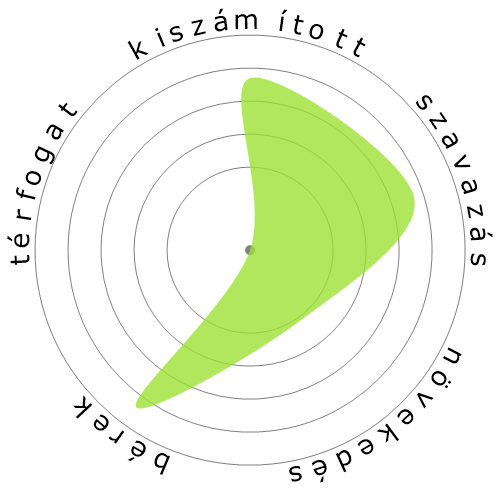Matematikusok
Hová szeretne legközelebb menni?
Vagy fedezze fel ezt a szakmát részletesebben...


Mit mutat ez a hópehely?
Mi ez?
Négy tényező alapján értékeljük a munkákat. Ezek a következők:
- Az automatizálás esélye
- A munkahelyek növekedése
- Bérek
- Rendelkezésre álló pozíciók száma
Ezeket az alapvető szempontokat érdemes szem előtt tartani munkakeresés során.
Az emberek ezt is megtekintették
Számított automatizálási kockázat
Alacsony kockázat (21-40%): Ennél a szintnél a munkák csak korlátozottan vannak kitéve az automatizálás veszélyének, mivel ezek a pozíciók technikai és emberközpontú készségek kombinációját igénylik.
További információ arról, hogy mi ez a pontszám, és hogyan számítják ki, elérhető itt.
Felhasználói szavazás
A látogatóink szerint alacsony az esélye annak, hogy ezt a foglalkozást automatizálni fogják. Ezt az értékelést tovább erősíti a kiszámított automatizálási kockázati szint, amely 28% esélyt becsül az automatizálásra.
Mit gondol, milyen kockázatai vannak az automatizációnak?
Milyen valószínűséggel fogják Matematikusok robotok vagy mesterséges intelligencia helyettesíteni a következő 20 évben?
Érzelem
Az alábbi grafikon ott jelenik meg, ahol elegendő szavazat áll rendelkezésre ahhoz, hogy értelmes adatokat lehessen előállítani. Az idő múlásával mutatja a felhasználói szavazások eredményeit, egyértelműen jelezve a hangulati trendeket.
Érzelem az időben (évente)
Növekedés
A(z) 'Mathematicians' munkahelyi nyitások száma várhatóan 3,7%-kal nő 2033-ra.
Teljes foglalkoztatottság és becsült állásnyitások
A frissített előrejelzések 09-2025 időpontban esedékesek..
Bérek
A(z) 2023-ban a 'Mathematicians' éves középfizetése 116 440 $ volt, vagyis 56 $ óránként.
'Mathematicians' magasabb összeget kaptak, mint az országos mediánbér, ami 48 060 $-n állt.
Bérek az idők folyamán
Térfogat
2023 időpontjában 2 220 ember dolgozott 'Mathematicians' munkakörben az Egyesült Államokban.
Ez körülbelül a < 0,001% -át képviseli az országban foglalkoztatott munkaerőnek.
Másképp fogalmazva, körülbelül minden 68 ezer. ember 'Mathematicians'-ként dolgozik.
Munkaköri leírás
Végezzen kutatásokat az alapvető matematikában vagy a matematikai technikák alkalmazásában a tudományban, a menedzsmentben és más területeken. Oldjon meg problémákat különböző területeken matematikai módszerek alkalmazásával.
SOC Code: 15-2021.00
Hozzászólások (25)
Válasz a hozzászólásra